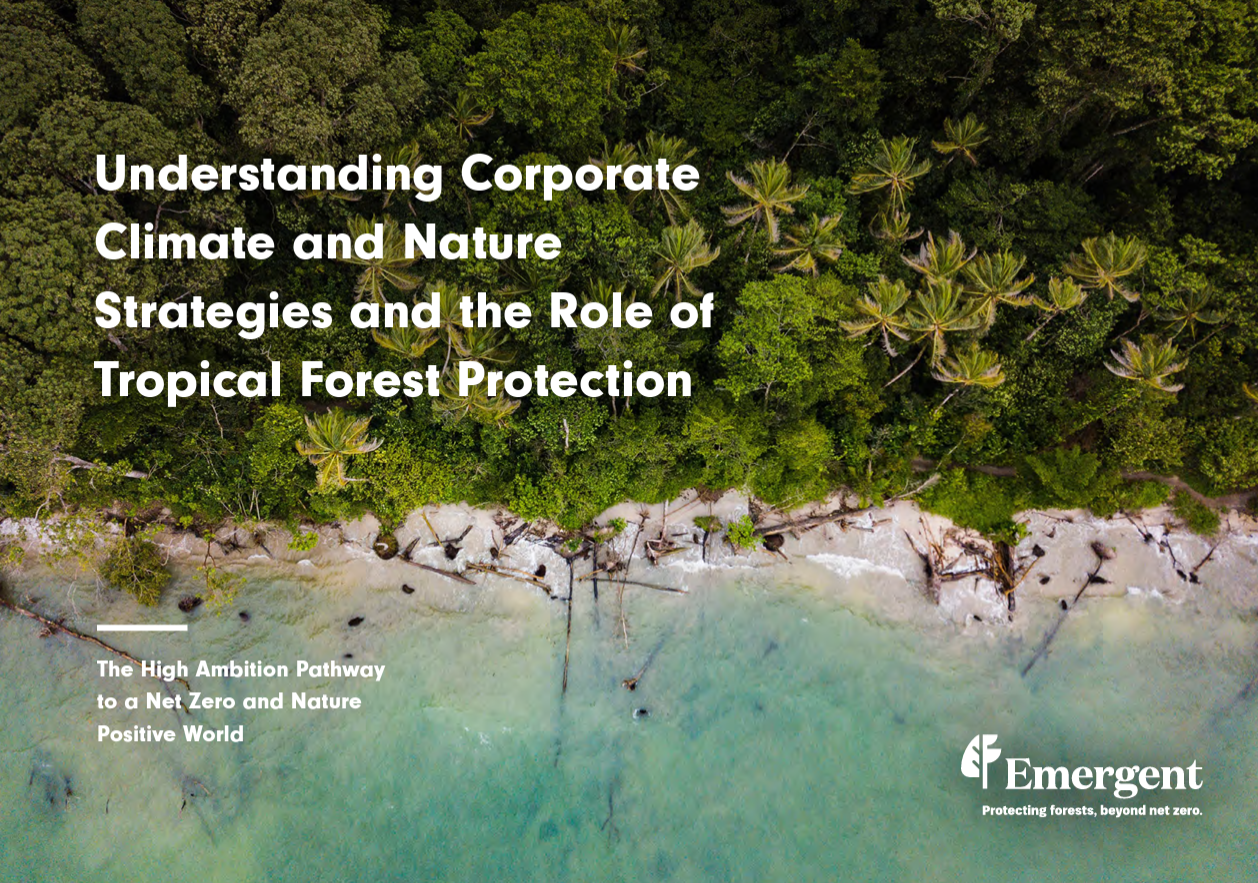Understanding Corporate Climate and Nature Strategies and the Role of Tropical Forest Protection
In recent years, more and more companies have begun to establish climate and nature commitments so they can play their part in ensuring the Paris Agreement’s 1.5-degree goal is met. This increase means that the market has become increasingly saturated, making it difficult for companies to navigate the landscape if they are looking for the ways in which they can meet their commitments.
Emergent, a non-profit that act as intermediaries between tropical forest countries and the private sector who coordinate the LEAF Coalition, have published a white paper that will help companies navigate this often confusing landscape. The white paper helps to define commonly used terms in commitments such as ‘science-based targets’, ‘carbon neutral’, ‘nature positive’ and ‘deforestation free’ to name a few examples. The role of tropical forest protection is also raised as a key method to support corporate and climate nature strategies through the use of Jurisdictional reducing emissions from deforestation and forest degradation (JREDD+).
JREDD+ is a comprehensive and inclusive approach to forest conservation scaled-up to cover whole jurisdictions. Emergent breakdown the benefits of the JREDD+ approach, and frame how the use of this method can support a companies’ commitment to carbon neutrality, net zero and climate positivity as well for deforestation free and nature positive commitments.
